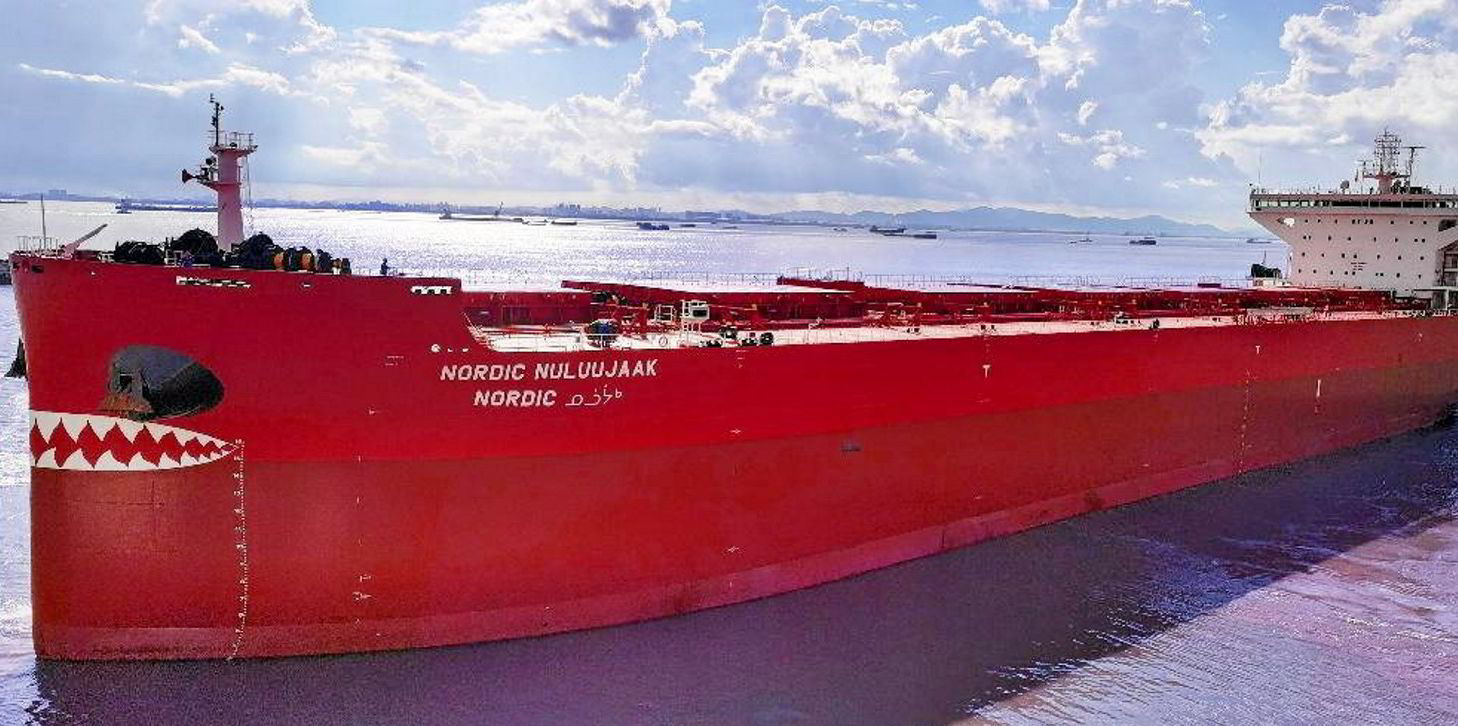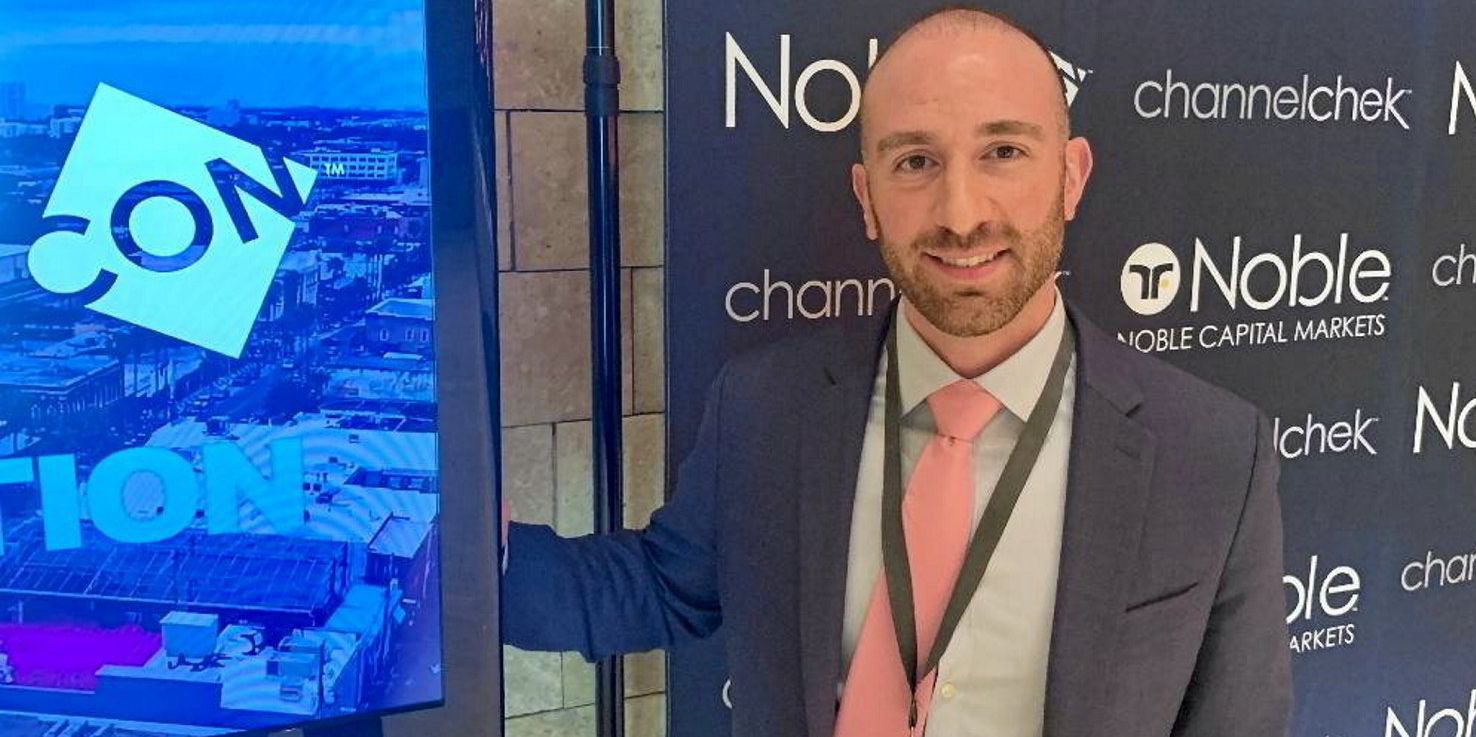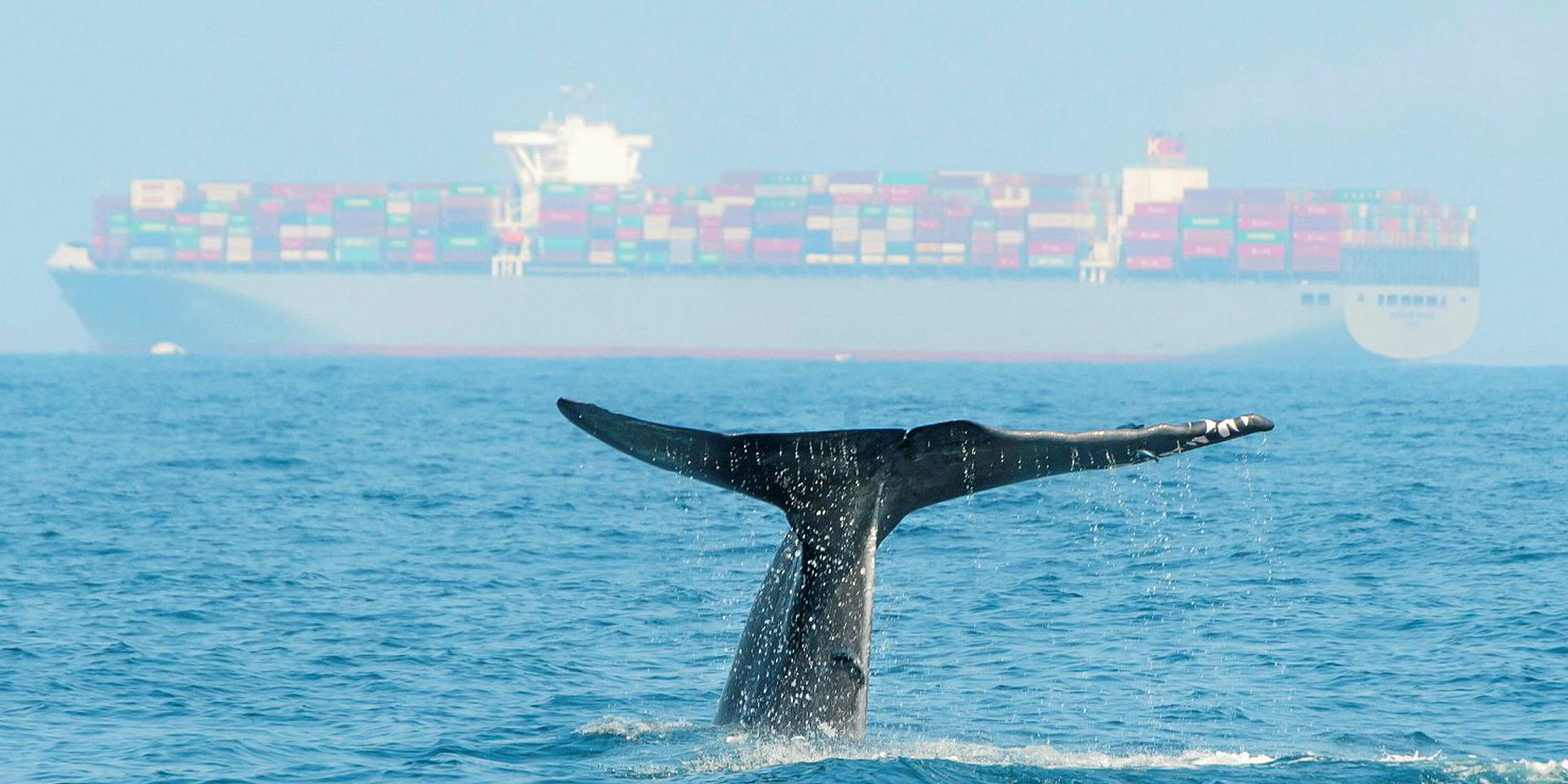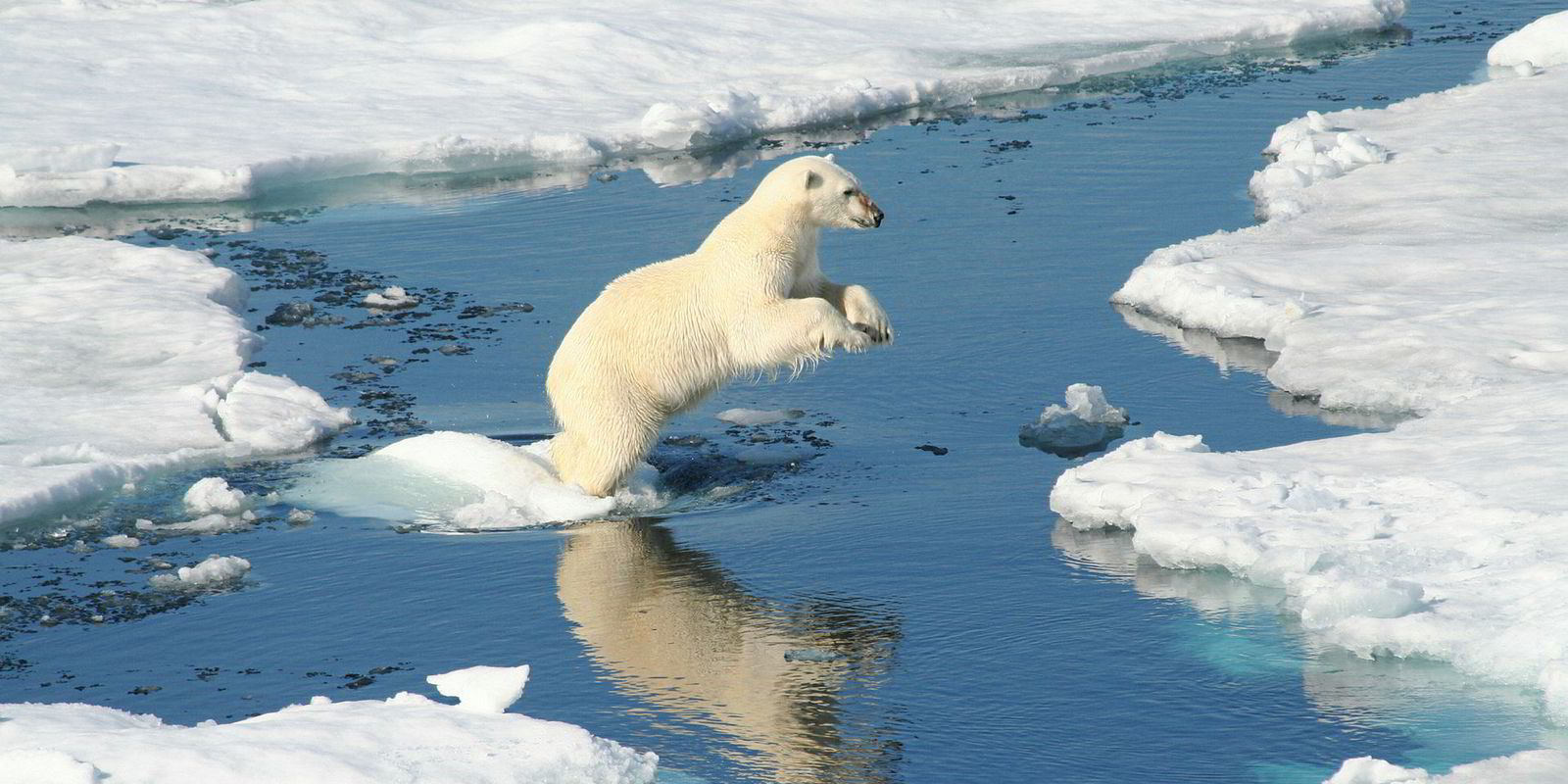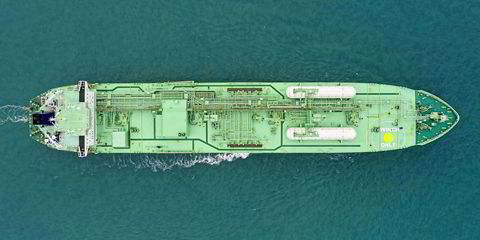A Pangaea Logistics Solutions ice-class vessel has become the first bulker to receive a key silent-running designation from DNV.
The classification society bestowed its Class Silent (E) Notation on the 95,800-dwt Nordic Nuluujaak (built 2021), which works largely in Pangaea’s core Arctic trade.
The notation recognises vessels with a demonstrated ability to reduce environmental noise emissions, consistent with a focus on protecting sensitive marine ecosystems.
While Rhode Island-based Pangaea has an overall focus on niche contract business with a cargo-first bent, it derives a major portion of revenue from the Arctic ice trade, in which it is one of the largest operators.
“Every part of our oceans where we operate is environmentally important, particularly within the ecologically sensitive habitats where our ice-class vessels transit, such as the Arctic Ocean,” said chief executive Mark Filanowski.
“Our newest vessels are not only designed to operate with lower carbon emissions, they also materially reduce underwater noise, positioning us to further reduce our overall environmental impact. With our industry looking for ways to mitigate ecological impact, hidden noise impacting underwater wildlife should be considered as well.”
The Nordic Nuluujaak was the first delivery in a quartet of ice-class post-panamax newbuildings delivered to Pangaea from Guangzhou Shipyard International in 2021.
The order came through a $129.2m bareboat charter structure with subsidiaries of Hong Kong lessor CSSC Shipping Co, which bareboat chartered them for 15 years to a new joint venture established by Pangaea and Stamford alternative financier Hudson Structured Capital Management.
The ships serve contracts with key customer Baffinland Iron Mines.
Pangaea became aware of the DNV Silent (E) Notation only after taking delivery of the quartet, so the designation is not owing to specific design modifications in the construction process, according to chief operating officer Mads Boye Petersen.
Rather, it reflects operational adjustments enacted by the owner to reduce environmental impact.
While the DNV designation applies for speeds up to 12 knots, “when operating in the Baffinland trade our ships don’t go more than nine knots, to minimise the underwater noise and general disruption of the marine life,” Petersen told TradeWinds.
“We would like to highlight that through changes in operational parameters, significant improvements can be made towards minimising any harmful effects on the world around us. In this instance, especially the narwhal population in the coastal areas where we operated in the Canadian Arctic.”
Pangaea is likewise taking operational measures to reduce carbon emissions as it awaits a true alternative to be developed in zero-emission fuel, Petersen said.
Its other bulkers from the Guangzhou order are exact sister ships to Nordic Nuluujaak, and the owner is in the process of seeking the same notation for the others.
DNV’s Antony DSouza, regional manager for the Americas, praised the shipowner’s commitment to addressing the noise issue.

“The notation is a clear demonstration of Pangaea’s commitment to minimising the vessels’ impact on the environment,” he said.
“There has been an increasing awareness in the industry of the impact that underwater radiation noise can have on marine life. This is one of the next frontiers in improving the sustainability of cargo vessels, and it is great to see proactive owners like Pangaea step up to address this issue.”
DNV has provided its “Silent” designation since 2010 and has awarded it to about 100 vessels, but these are primarily smaller, scientific research or cruise ships.
“But we are seeing a growing interest in larger commercial vessels looking to demonstrate their awareness of the issue, enhance their operational and environmental performance, and benefit from incentives to cut noise,” DSouza said.
One aspect that has been disappointing to Pangaea is that others trading in the Arctic have not been equally concerned about the issue, Petersen said.
“There are both cargo ships and also a lot of cruise ships that go much faster than we do: 13, 14, 15 knots,” he said.
“Our ships are actually doing something to try to mitigate the noise. We try to do things that are sensible, but then you have others that operate without regard to these issues and it’s disappointing.
“We are happy we took the first step in working toward Silent (E) notation for these four vessels.”
